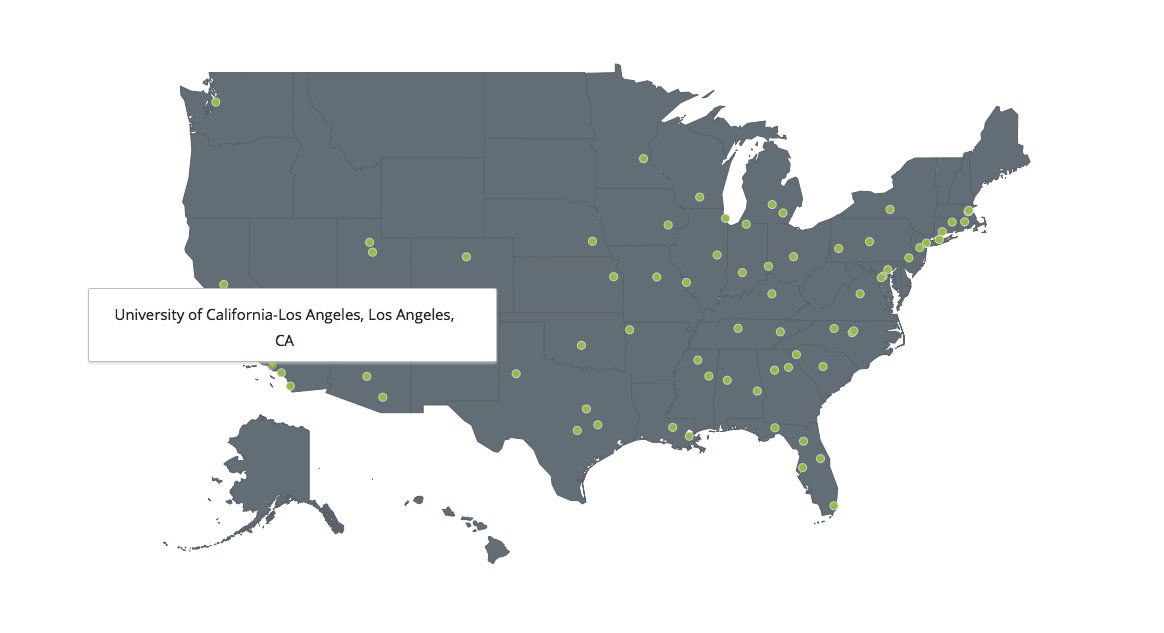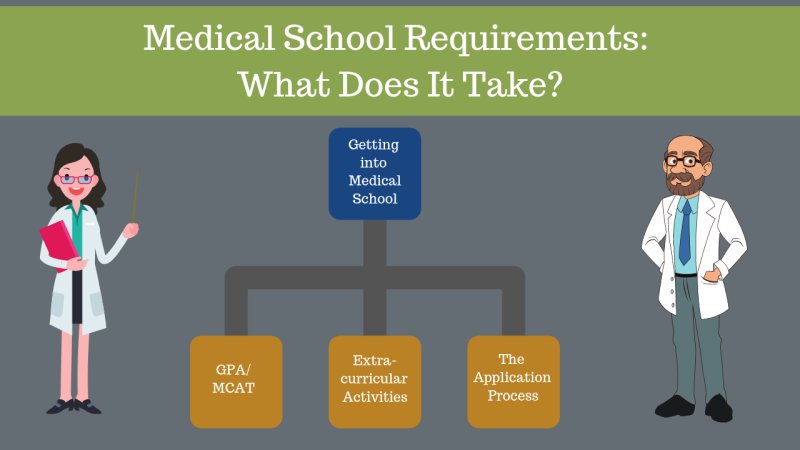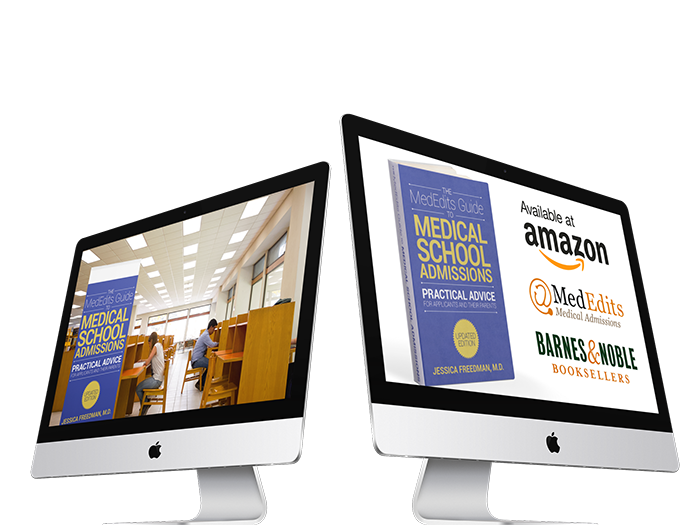If your goal is to be a doctor one day, you probably want to know what are the best colleges for premed. To give yourself the best odds of getting into a great medical school, you need to take care when selecting an undergraduate institution. As an aspiring physician, you want to consider a number of factors that go beyond the majors and academic programs available at the college question. Keep reading to learn about the best colleges for premed, along with tips on assessing your options.
Factors to Consider When Choosing the Best Premed College
Before diving in to the specific “best colleges for premed,” it is important to first review the are several factors you need to consider when making your college list. The bottom line is that ANY college can be great for premeds and we have worked with successful applicants from a variety of collages. By the same token, your undergraduate college prestige will not guarantee a medical school acceptance which is why you must choose carefully where you want to go to college.
1) The Premed Track and Major Selection
The vast majority of top-tier colleges do not offer premed majors. If the college doesn’t have a designated premed major, students can choose to major in any discipline contrary to popular thinking that students must major in a STEM field. However, and not surprisingly, most admitted students majored in biological or physical sciences.
Keep in mind, that major choice will not dictate your success in the medical school admissions process. At MedEdits, we have worked with successful applicants from a variety of majors including everything from biochemistry to art history.
2) Medical School Admissions Data
If you’re planning to apply to medical school, it’s only logical to evaluate undergraduate institutions based on their med school acceptance numbers. After all, if the college has historically been good at getting its graduates into medical school, then you can safely assume they’ll help you do the same.
It’s worth noting that colleges sometimes post misleading claims about their admissions numbers. When researching a given school, be aware that they might be filling their premed track with tough courses (known as weeder classes) in order to disincentivize weaker students from pursuing a career as a doctor. As a result, their acceptance rate may seem higher than it actually is since many students may drop the premed track after enrolling in premed classes they find too difficult.
3) Premed Advising
Aspiring med students have a lot going on, and it’s easy for important tasks to get lost in the shuffle. Fortunately, many top schools have helpful premed advising programs. Along with keeping students on the right track, these programs help them select courses that will help them satisfy medical school requirements, choose majors, and prepare their med school applications. Staff members may also be available to aid in interview preparation and advise you on taking the MCAT.
4) Clinical Experiences
Medical schools are competitive, and a great education isn’t necessarily enough to guarantee you admission to a great college. The most desirable students also possess clinical experience that helps them stand out from other applicants. When it comes to choosing a premed college, look for institutions that help students gain firsthand experience working or volunteering in clinics, hospitals, and nursing homes. Proximity to medical centers and hospitals is also something to focus on. As a bonus, these opportunities will help you determine whether or not a career in medicine really is right for you.
5) Research Opportunities
Research is an essential part of a physician’s job, so it’s no surprise that medical schools look favorably upon students with experience in this field. The best colleges for premed offer opportunities for undergraduates to work in a lab or clinical setting, researching subjects of interest. If you think you want to be a doctor, consider how the school will help you further your education outside your classes.
Undergraduate Universities with the Most Premed Applicants
To some extent, the undergraduate colleges with the most premed applicants might be considered to be “the best” colleges for premeds as they will have the resources and opportunities that students need to be successful. Below you will find the top 20 universities with the number of premedical applicants they had last year.
| University of California Los Angeles | 1195 |
| University of Texas at Austin | 993 |
| University of Florida | 860 |
| University of Michigan | 824 |
| University of California Berkeley | 735 |
| University of California San Diego | 646 |
| University of Georgia | 591 |
| Texas A&M | 579 |
| University of North Carolina Chapel Hill | 541 |
| Ohio State University | 522 |
| University of Virginia | 511 |
| University of Wisconsin Madison | 510 |
| Johns Hopkins University | 506 |
| University of California Davis | 481 |
| University of Washington Seattle | 464 |
| Rutgers University | 442 |
| University of Texas Dallas | 438 |
| University of South Florida | 438 |
| University of California Irvine | 430 |
| University of Central Florida | 422 |
Best Premed Colleges
We are often asked what colleges and universities we prefer for premeds. Please review this list with a grain of salt as students can do well in the premed process from any undergraduate college. Below you will find some of our personal favorite top 20 colleges and universities with the number of premedical applicants they had last year.
| Emory University | 375 |
| Washington University St. Louis | 372 |
| University of Pennsylvania | 321 |
| Duke University | 306 |
| Vanderbilt University | 292 |
| New York University | 266 |
| Harvard University | 260 |
| Northwestern University | 258 |
| Northeastern University | 242 |
| Rice University | 230 |
| Tufts University | 203 |
| Yale University | 195 |
| University of Rochester | 143 |
| George Washington University | 145 |
| Wake Forest | 143 |
| SUNY Buffalo | 136 |
| City University of New York | 126 |
| University of Maryland | 117 |
| Syracuse University | 81 |
| Williams College | 73 |
Best Liberal Arts Colleges for Premed
The reality is the liberal arts colleges, which don’t make “the list” of colleges providing the most premed students because they have such small student bodies, are often the ideal options for premeds. With more personalized attention, smaller class sizes, great premed advising, and great scholarly opportunities, liberal arts colleges can be a wonderful choice for premeds.
| Amherst College |
| Pomona College |
| Swarthmore College |
| Wellesley College |
| Bowdoin College |
| Carleton College |
| Claremont McKenna College |
| Middlebury College |
| Barnard College |
| Haverford College |
| Harvey Mudd College |
| College of the Holy Cross |
| Occidental College |
| Lafayette College |
| Trinity College |
| Union College |
| Lehigh University (not liberal arts but with few premeds) |
| Muhlenberg College |
| Wesleyan University |
| Hamilton College |
Best Honors Colleges for Premed
Any public university with an honors college can provide phenomenal resources for premeds. Honors college students often enjoy special perks such as early class registration, advising, and special housing/community building. Students also have access to special research and scholarly opportunities and career guidance. Honors colleges can offer the chance to get a great education and a more reasonable cost while pursuing a stellar premedical education. Some of our favorite honors colleges include:
| Binghamton University Scholars Program |
| Commonwealth Honors College University Massachusetts Amherst |
| Barrett, The Honors College at Arizona State University |
| Schreyer Honors College at Penn State University |
| Honors College at University of Michigan – Ann Arbor |
| Macaulay Honors College at City University of New York (CUNY) |
| Honors College at University of Texas at Austin |
| William Honors College at Indiana University Bloomington |
| Honors College at University of Washington |
| Roger Hadfield Ogden Honors College at Louisiana State University |
| Rutgers Honors College at Rutgers, The State University of New Jersey |
| Wilkes Honors College at Florida Atlantic University |
| Clark Honors College at University of Oregon |
| Scholars Program at University of Maryland, College Park |
| Honors College at University of Arizona |
| Honors College at University of Georgia |
| Honors College at University of Washington |
| Calhoun Honors College at Clemson |
| University Honors College at University of Pittsburgh |
Best Pre Med Colleges in New York
- Cornell University, Ithaca, NY
- New York University, New York, NY *Related: How to get into NYU medical school
- State University of New York (SUNY) – Stony Brook
- Columbia University
- Fordham University
- Syracuse University
- University at Buffalo (SUNY)
- Binghamton University (SUNY)
- Rochester Institute of Technology (RIT)
- University of Rochester
- Hofstra University
- Colgate University
- Skidmore College
- Vassar College
- Hamilton College
- Union College
Best Pre Med Schools in California
- University of California-Los Angeles, Los Angeles, CA
- University of California-Berkeley, Berkeley, CA
- University of California-San Diego, La Jolla, CA
- University of California-Davis, Davis, CA
- University of California – Irvine, Irvine, CA
- Stanford University
- California Institute of Technology
- Occidental College
- Pomona College
- Claremont McKenna College
- Harvey Mudd College

Best Premed Colleges in Florida
- University of Florida, Gainesville, FL
- University of South Florida, Tampa, FL
- University of Miami, Coral Gables, FL
- Florida State University, Tallahassee, FL
- University of Central Florida, Orlando, FL
- Florida International University (FIU)
- Florida Atlantic University (FAU)
Best Premed Schools in Michigan
Best Premed School in Texas
- Rice University
- University of Texas at Austin, Austin, TX
- Texas A & M University, College Station, TX
- Baylor University, Waco, TX
- Texas Tech University-Lubbock, Lubbock, TX
- Texas Christian University
- University of Houston
Best Premed Schools in Arizona
- University of Arizona, Tucson, AZ
- University of Arizona Honors College
- Arizona State University, Tempe, AZ
- Barrett, The Honors Colleges of Arizona State University
MedEdits PreMed Timeline
In this premed timeline video, Dr Freedman discusses:
- Premed Timeline
- Pre Med Requirements
- Best Pre Med Courses to Take
- Pre Med 4 Year Plan
- Pre Med 5 Year Plan
- Pre Med Acceptance Timeline
Premed Timeline 2020-2021
Related article: What are the Best Pre Med Majors? A Definitive Guide (2021-2022)
You’re premed. Does it matter where you go to college?
You’re headed to college and ready to begin your premed and medical school application timeline journey.
So, does it matter where you go to college?
Going to the “best college” to which you are accepted may not always be a wise choice.
If you are certain that you want to go to medical school, think twice.
I’m often asked: Isn’t a “top ranked” college the best option for a premed?
Is the college in which you’re interested notorious for being a “premed weeder” school?
Do their premedical classes have impossible curves?
If so, your GPA may suffer. This could negatively influence your chance of admission to medical school.
Where you go to college matters.
So, what should you do?
First of all, I do advise all premed students to attend four year universities rather than community colleges.
Community college classes are not considered as rigorous and most admissions committees do not respect grades from community college courses.
What should you consider when evaluating premed classes?
As you decide where to attend college, also consider class sizes.
A common applicant complaint is:
“But my classes are huge. My professors don’t know me. I have no one I can ask for letters of reference.”
Related Video: What is a Good MCAT Score? MCAT Scores 2021-2022
You know you want to go to medical school.
In other words, you know you want to go to medical school.
- Consider the academic competitiveness of the school
- Class sizes in making your college choice
- Consider the curriculum that will help you prepare for the MCAT and has a track of record of students who obtain competitive MCAT scores
So, here’s the deal:
What may be best is to attend a reputable undergraduate college,
But,
Don’t choose a school that is not notorious for making it very tough to earn good grades.
Do choose a school where you will get a solid educational foundation in the sciences.
What else?
Choose a school where you will have the chance to work directly with your professors rather than teaching assistants.
And that’s not all:
As you make your college choice, seek out information on how premedical students fare.
Be sure to ask premed precollege administrators the following questions:
What percentage of students who enter college as “premeds” graduate and attend medical school?
Do your premed homework.
Where do graduates attend medical school?
So, ask the following:
What percentage of students who want to apply to medical school are “approved” for a premedical committee letter?
Well, you can read more about this in my book.
In Chapter 5 of The MedEdits Guide to Medical School Admissions, I discuss this item which couled be part of your application process.
But, here’s the most important part:
Be sure to attend a college where you can pursue your intellectual curiosities.
Related Article: Top 7 Questions About Medical School Requirements (2021-2022)
Medical school admissions requirements tip
Remember:
Medical school admissions committees do not require applicants to major in a science.
But,
You will need to enroll in challenging science courses.
In fact:
With medical schools seeking diverse student bodies, admissions committees like to see distinctive and atypical majors.
For example:
Medical school admissions officers like applicants with academic diversity,
Consider this:
Think about a major or minor in a nonscience discipline such as art history or Hispanic studies.
The bottom line:
Your intellectual pursuits during college can actually distinguish you during the application process.
So remember:
College might also be one of the last times you can pursue your nonmedical and scientific interests in depth.
So, make the most of it!
Excerpt from The MedEdits Guide to Medical School Admissions by Dr. Jessica Freedman.
The Medical School Admissions Guide
The MedEdits Guide to Medical School Admissions
This is comprehensive and up to date guide offers realistic advice for applicants on many topics including:
- Where to go to college if you are premed
- When to take the MCAT
- Whom to ask for letters of reference
- How to write a personal statement
- How to write application experience entries
- How to write “most meaningful” experience application entries
- What medical schools look for in applicants
- Medical school admission requirements
- What applicants can do to market themselves most effectively
- How medical school admissions committees decide whom to interview
- What to do if you are “waitlisted”
- Deciding where to apply and attend
Looking for other top premed universities?
Check out our state by state list below.

Best Pre Med Schools
As a premed, you must have a reliable and knowledgable premed advisor. If you don’t have one, consider working with us throughout your college years. Click Here for information.












